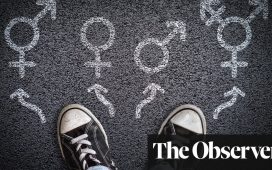Last month, Mike Feinberg, co-founder of the famed KIPP charter schools, sued the nation’s largest charter network for defamation. In February 2018, Feinberg was ousted by KIPP for alleged sexual abuse. Feinberg denied the allegations and has now charged KIPP with mishandling the investigation, ignoring exculpatory evidence, and ruining his reputation. The suit casts a spotlight on issues posed by the #MeToo era in schooling, and the need to both protect children and ensure that educators are treated judiciously when their reputations and professional lives are at stake.
Feinberg, who had been a leader in the celebrated charter network since co-founding the first KIPP school in Houston in 1994, alleges that he was terminated amidst allegations of sexual misconduct despite having been cleared by an internal investigation. At the time, KIPP cited “credible” evidence that Feinberg had sexually abused a KIPP middle school student two decades previously and attempted to engage two employees in sexual relationships.

KIPP co-founder Mike Feinberg is suing the charter network for defamation following his 2018 ouster … [+]
Feinberg’s firing came in the early days of #MeToo, shortly after the scandal that enveloped Hollywood mogul Harvey Weinstein. While #MeToo surfaced horrific instances of sexual abuse, there were also concerns that the movement’s fervor could lead to troubling outcomes in some cases. Indeed, the Feinberg-KIPP clash touches on many of the questions that have arisen regarding the fairness of Title IX investigations and enforcement on college campuses.
Feinberg’s tale started in April 2017, several months before #MeToo exploded. While visiting a KIPP high school that spring, Feinberg was informed by an assistant principal that he had been accused of raping a current student’s cousin nearly twenty years ago. Feinberg denied the claim and says he “made sure the complaint . . . was reported immediately to KIPP’s leadership as well as the Texas Department of Family and Protective Services.” Feinberg says he recused himself from any role in the investigation.
KIPP engaged Ellen Spalding, a partner at the Houston-based law firm Rogers, Morris & Grover, to conduct a full investigation. After the four-month inquiry was completed, KIPP Houston Public Schools superintendent Sehba Ali wrote a letter to Feinberg on August 28 which said, “Other than what the former student alleges … there is no evidence of any wrongdoing.” The letter reported that Ali and KIPP “consider this matter to be officially closed.”
In November, the month after #MeToo erupted, KIPP Houston Public Schools and KIPP Foundation notified Feinberg that they were launching a new investigation. That fall, KIPP Houston and the KIPP Foundation jointly hired D.C.-based law firm WilmerHale to launch a second inquiry into the allegations. In a letter to Feinberg dated February 22, 2018, KIPP Houston Board Chair Bill Boyar explained the move by saying that “questions remained” after the initial investigation. Feinberg’s suit alleges that KIPP’s real motive behind the second inquiry was to reach a different determination.
Boyar told Feinberg that WilmerHale’s investigation found the alleged victim to be “credible,” even if it was unable to “conclusively confirm” the allegations. Boyar also suggested that investigators “presented additional evidence regarding the allegations of sexual harassment.”
Feinberg’s suit counters that the second inquiry was problematic from the start. It charges, “The process was grossly unfair but KIPP saw it as necessary to effect and support Mike’s ouster” and alleges that multiple board members had approached the second investigation with a “predetermined” outcome in mind. As in the case of so many disputed campus Title IX investigations, Feinberg asserts that the investigators never provided him with the details about the allegations against him and never gave him an opportunity to respond to them. Feinberg’s suit claims, “WilmerHale and KIPP were the sole judges, jury and, upon publishing false statements about their investigation, executioners.”
On the day that Feinberg was fired in February 2018, he says that a WilmerHale attorney informed him that the firm had found “no guilt” and that the 20-year old abuse allegation could not be confirmed. Feinberg’s suit alleges that KIPP wanted a public spectacle and “had no intention of preparing a joint statement or handling his departure ‘quietly’ . . . [but] had already sourced exclusive news stories about Mike’s firing to the New York Times and the Houston Chronicle.”
The whole affair is suffused in emotional, competing claims. Feinberg says, “I love KIPP, it’s my baby, I would never do anything to damage it, but I had to file this lawsuit to get access to the evidence” as it’s “the only way I will ever be able to clear my name and repair my reputation.” For its part, KIPP’s official response to Feinberg’s filing maintains, “This is a baseless and frivolous lawsuit. Mr. Feinberg’s employment was terminated last year after thorough investigations uncovered credible instances of misconduct incompatible with KIPP’s values. We regret Mr. Feinberg is choosing to put the women who came forward to share painful experiences . . . and the entire KIPP community through further distress.”
Whatever the ultimate resolution of Feinberg’s suit, the unhappy saga contains vital lessons for parents, educators, and policymakers. It should go without saying that the first priority for any school is the safety and well-being of its charges. Period. There is no room for excuses or hedging on this point.
And yet, it’s equally crucial that educators be treated carefully and credibly. Educators work intimately and forge powerful bonds with emotionally immature, impetuous, and impressionable minors. A teacher can’t do their job whole-heartedly or well if asked to live in constant fear that unsupported allegations can ruin their professional lives and public reputations.
This is as complicated as one can imagine, but schools and school systems have no choice but to find ways to get it right.





